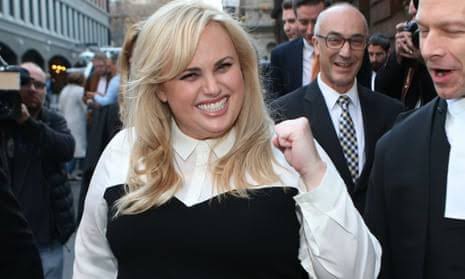Chakraborty, who has faced intense scrutiny and public vilification over the allegations, spent 27 days in jail after being labeled a "gold digger" and a "murderer" by the media during a sensational coverage of the case. Her legal representative, Satish Maneshinde, emphasized the extensive nature of the investigation and urged media entities to reflect on their role in the damaging narrative against Chakraborty. Feminist lawyer Payal Chawla echoed these thoughts, condemning the misogynistic treatment of the actress and urging society to be cautious against judgmental attitudes.
Chakraborty, who has remained largely silent since the court proceedings began, was spotted visiting a temple with her family. Meanwhile, her brother, who also faced accusations during the ordeal, shared a poignant message through social media that connotes vindication. Following the chaotic media circus that engulfed Chakraborty post-Rajput's death, she has since engaged in various entrepreneurial ventures, including a clothing line and a podcast.
As reactions flood in from other Bollywood figures and commentators, many are calling for a reckoning regarding the slanderous media techniques that exaggerated Chakraborty’s alleged guilt. Discussions are now surfacing on social media about the necessity for media outlets to apologize for their aggressive reporting, and some advocates suggest that Chakraborty should pursue a defamation case against those who falsely accused her.
Amidst the revival of her public persona, questions linger regarding the impact the relentless media scrutiny had on Chakraborty and the broader conversation about the treatment of women in the public eye. The case has underscored both the consequences of sensationalism in media and the urgent need for empathy in times of personal tragedy.
Chakraborty's journey continues as she navigates her path towards reclaiming her narrative while the backlash against the prejudiced media tactics unfolds.
As the story develops, many hope it serves as a clarion call for responsible journalism and accountability, particularly in cases involving highly public figures.
Chakraborty, who has remained largely silent since the court proceedings began, was spotted visiting a temple with her family. Meanwhile, her brother, who also faced accusations during the ordeal, shared a poignant message through social media that connotes vindication. Following the chaotic media circus that engulfed Chakraborty post-Rajput's death, she has since engaged in various entrepreneurial ventures, including a clothing line and a podcast.
As reactions flood in from other Bollywood figures and commentators, many are calling for a reckoning regarding the slanderous media techniques that exaggerated Chakraborty’s alleged guilt. Discussions are now surfacing on social media about the necessity for media outlets to apologize for their aggressive reporting, and some advocates suggest that Chakraborty should pursue a defamation case against those who falsely accused her.
Amidst the revival of her public persona, questions linger regarding the impact the relentless media scrutiny had on Chakraborty and the broader conversation about the treatment of women in the public eye. The case has underscored both the consequences of sensationalism in media and the urgent need for empathy in times of personal tragedy.
Chakraborty's journey continues as she navigates her path towards reclaiming her narrative while the backlash against the prejudiced media tactics unfolds.
As the story develops, many hope it serves as a clarion call for responsible journalism and accountability, particularly in cases involving highly public figures.



















